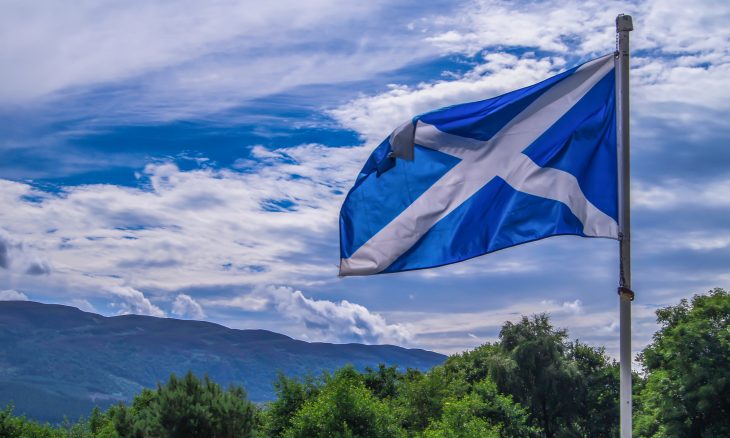Leading organisations in the personal care sector have received confirmation from Kate Forbes MSP, the Cabinet Secretary Cabinet Secretary for Finance and Economy, that face-covering restrictions will be lifted in Scotland, allowing the hair and beauty industry to be back to work and fully operational.
From Monday (31 May), therapists will be permitted to offer clients treatments to the face as long as the practitioner is wearing a Type IIR face mask and a face visor or goggles.
BABTAC, the British Beauty Council, NHBF and UK Spa Association have been lobbying the Scottish Government to change its current legislation, working tirelessly to push for a review of the rules around face coverings. This was because Scottish therapists were restricted in the treatments they could offer, which was not in line with the rest of the UK. The restrictions regarding mask-wearing during treatments had a significant impact on revenue, as therapists were not able to offer a full range of services and as a result, 10% of Scottish businesses in our industry had closed for good by December 2020.
The then Cabinet Secretary, Fiona Hyslop MSP wrote to our organisations in April confirming that, as a result of our evidence, the Scottish Government would conduct an urgent review into close contact guidance, specifically focussing on the wearing of face coverings during treatments. Collectively, we presented a robust argument pushing for alignment with the rest of the UK and demonstrating the ways in which our industry could safely mitigate the additional risks associated with being in close contact.
Lesley Blair, CEO and Chair of BABTAC comments, “We are absolutely delighted to have been instrumental in bringing about the lifting of this restriction in Scotland and grateful to the Scottish government and Deputy Clinical Director for giving us the opportunity to evidence why it was so important. The Scottish hair, beauty and holistic services industry has been hit hard by the pandemic. According to the latest research, 70% of businesses said they could not be sure their business would survive until the end of the financial year so being able to offer a full range of services is imperative for many businesses’ survival”
“Professionals working in this industry have always followed strict health and safety guidelines and have continued to ensure a safe environment during the pandemic with the use of extensive PPE. We are therefore grateful that finally the beauty industry can all properly get back to work. It is equally important that consumers support the industry and feel safe getting back into the salons to have their favourite treatments done.”
Richard Lambert, chief executive of the NHBF said “I’m delighted that salons in Scotland will finally be on a level playing field with the rest of the UK and that we succeeded in making the case that this is a safe and responsible sector. It proves that building relationships with Government is every bit as important as campaigning hard. Good luck to all those now able to offer their full list of treatments and services and I hope business booms.”
Helena Grzesk, COO of The British Beauty Council and UKSA Policy Consultant says: “It’s fabulous news for the hundreds of make-up artists and beauty practitioners in Scotland who have endured a very tough and challenging year. They have been unable to work due to the existing face covering requirements. Naturally, we are delighted that the Scottish government listened and took the time to review the beauty industry’s call to allow clients to temporarily remove face coverings to receive a treatment.”
Pre-COVID, the hair, beauty and holistic service industry generated more than £880 million annually to the Scottish economy with over 3,800 businesses operating in Scotland on local high streets[1]. As a sector demonstrating 54% growth in the five years prior to the pandemic[2] and three of the top retail categories showing most growth in the first half of 2020 it is evident that with support to recover, the personal care sector can return to the profitable position it was previously.
An update to the
current guidance for close contact services is due to be published shortly. The
Cabinet Secretary has confirmed that a Type IIR mask and a face visor or
goggles will be required for practitioners carrying out treatments to the face.
[1] ONS industry turnover 2018, NHBF Industry Statistics 2020
[2] Local Data Company NHBF Industry Statistics 2020


